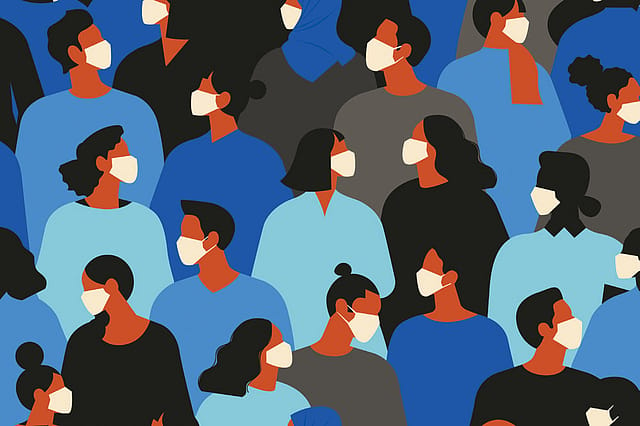‘I had a smooth recovery because I was young’

HER FAMILY LET her go to Wuhan to study medicine because they knew someone else studying in this central Chinese city: a medical student hailing from their Kerala village. Although Yasmin (name changed) was initially homesick, she soon became enamoured of the city, its natural beauty, the sprawling campus of Wuhan University, the lakes, rivers and mountains. The capital of Hubei province also had a roaring creative scene and was home to virtuosos in music and art.
Yasmin, the first Indian to test positive for Covid-19, had no inkling of the viral disease in December 2019 when it originated in her foster hometown in China. She learnt about it in the first week of January when students were asked to wear masks and stay away from crowded places. Her classes ended on January 13th ahead of a four-week holiday, but she and many friends had decided to stay back—they usually went home once a year in August when they had more than six weeks to enjoy their vacation. A few days later, around January 17th, students began to hear of a spike in infections and it was then that Yasmin and her friends decided to leave the city. They booked the tickets for a flight in the evening of January 23rd, and by early morning—around 2 AM—the city had announced a lockdown beginning at 10 AM. So they left immediately and, at the Wuhan railway station, they were put through a basic health check-up by the authorities.
She and her friends took a domestic flight to Kunming, capital of China's southern Yunnan province, and on arrival they had to once again go through a primary health check. From there, 20 of them, including Yasmin, took a flight to Kolkata. In the eastern metropolis, her temperature was checked using a thermal sensor. Some of her friends parted ways in Kolkata to head for Dubai, Saudi Arabia and other destinations, while she and two others headed for multiple locations in Kerala. She was the only one flying to Kochi.
In accordance with guidelines given by the Kerala state health department, she reported her arrival (on January 25th) from Wuhan and was asked to go for a home quarantine. Two days later, Yasmin developed a sore throat and started coughing. She immediately reported her health status to the health department who advised her family to go for a check-up. She was told that she would be sent an ambulance. She was quarantined in Thrissur Government Hospital and her family asked to go for self-isolation.
It's the Pits!
13 Feb 2026 - Vol 04 | Issue 58
The state of Indian cities
On January 30th, Yasmin heard the news of her testing positive for Covid-19 first from the media and later from the hospital. She was soon shifted to Thrissur Medical College. Her parents as well as other members of the family and people she visited were tested— luckily, all tested negative for Covid-19. She was impressed by the dexterity with which the state health authorities sprung into action to track down people who had travelled with her. She helped them by providing information. Of the 20 students who travelled from Wuhan, only three, including her, tested positive. "But the alacrity with which the government acted to trace people, test them and offer them treatment was quick. I had never expected them to be this prompt," Yasmin tells Open.
Before she tested positive for Covid-19, Yasmin had been given antibiotics by the doctors who treated her symptoms. Since she was young and healthy, she never felt overly fatigued. "It was like any viral fever. I was okay. There wasn't anything unusually debilitating about it," notes Yasmin, emphasising that doctors at the district hospital and the health authorities in the state were hands-on in handling her case and the health crisis that accelerated later. After the doctors confirmed that she was infected with the latest strain of the coronavirus, she was put under anti-viral medication. She had to have oseltamivir tablets, sold under the brand name Tamiflu, for five days, twice a day (not hydroxychloroquine, lopinavir/ritonavir; remdesivir/favipiravir or camostat as one would have expected). She got well quickly, yet she had to stay in hospital until February 20th and under quarantine till March 2nd.
Yasmin says that although people in her neighbourhood were scared, she did not have to face any stigma. "Relatives and others now come home and I have started going out. I feel as healthy as ever because I was treated as soon as the symptoms appeared. I must say I got first-class treatment," explains Yasmin, admitting that she misses Wuhan. The university has started taking online classes and she is aching to get back to China, she says. "I am happy to read a story that people now want to go to China to stay safe. I don't know how soon it will take for things to become normal in Wuhan. I am worried about those who are ill and those who have low immunity to the disease…I am waiting to get back. It is such a beautiful city," says the third-year MBBS student who hopes that things will become "business as usual" soon. "I am also happy to see that my friends from Wuhan have also recovered thanks to God's blessing," she adds. We have all emerged stronger, Yasmin asserts.
